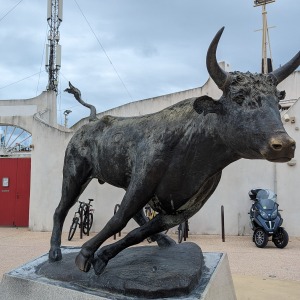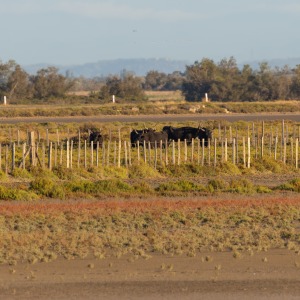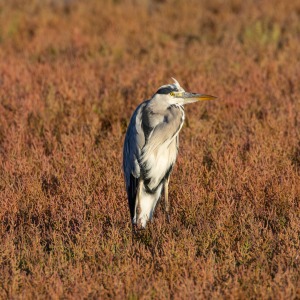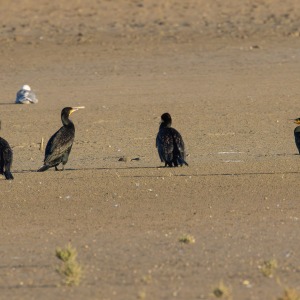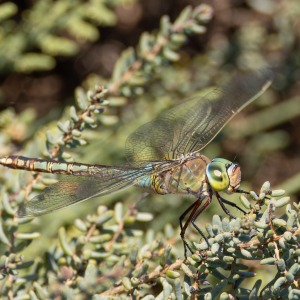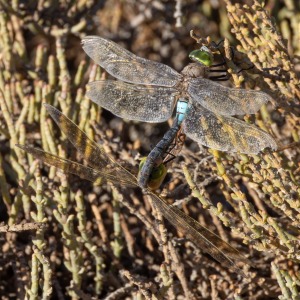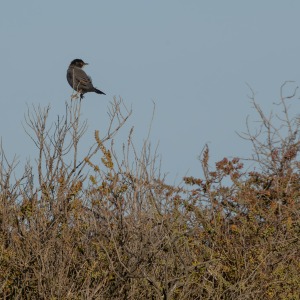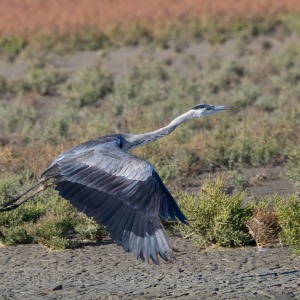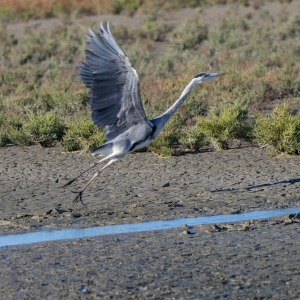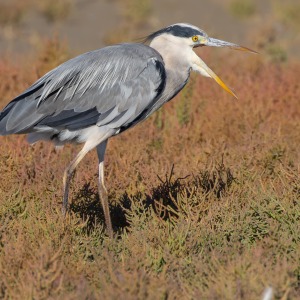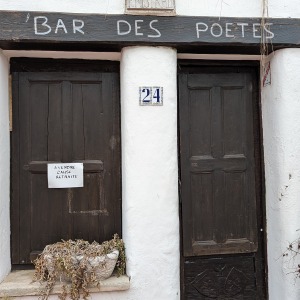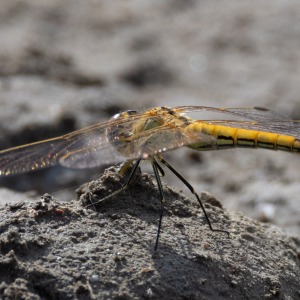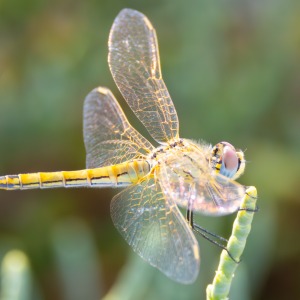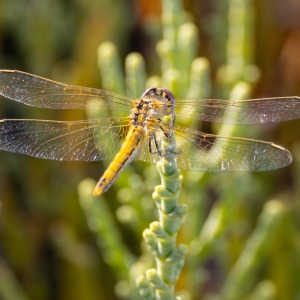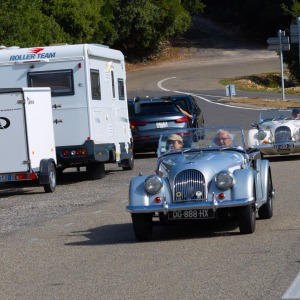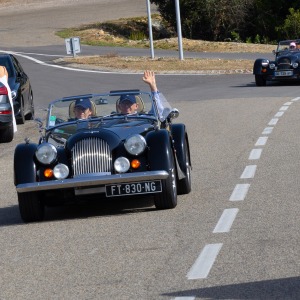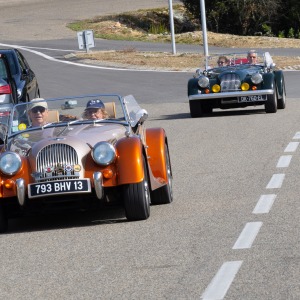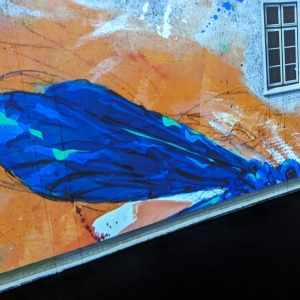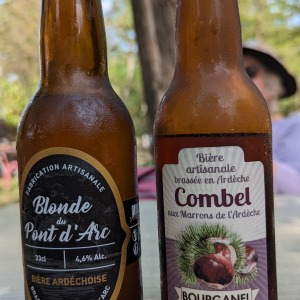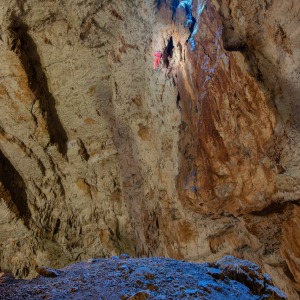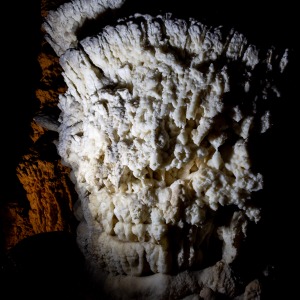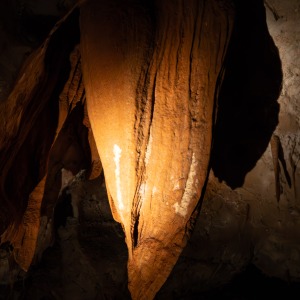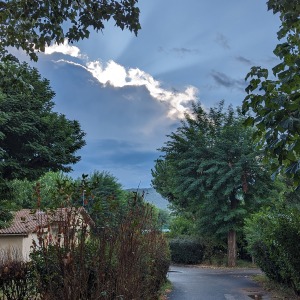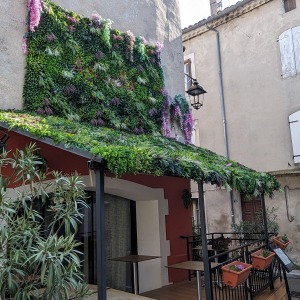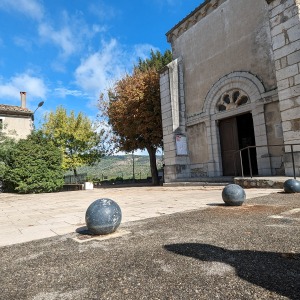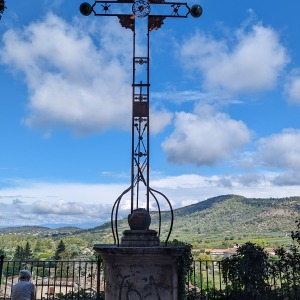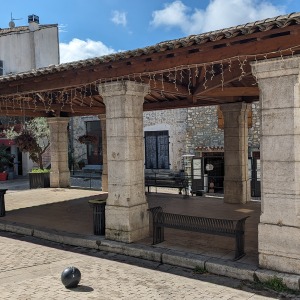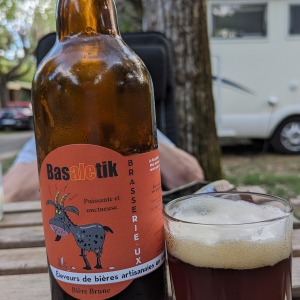17th September 2023
Up to get croissants and bread for breakfast and lunch. Packed away the damp awning and the van for our travel down to Saintes-Maries-de-la-Mer. I decided to avoid the pay roads, and also wanted to ride the road from our present campsite along the Ardeche Gorge. So programmed Google maps to go to Saintes-Maries-de-la-Mer, but added a stop at Saint-Martin-d’Ardèche. OK, seemed fine.
Set out from the campsite, and Google wanted me to turn left not right, there was a quicker route than going down the Gorge. No problem ignored her, and turned right. She recovered and accepted that. We stopped off at many viewing places along the gorge, admiring the gorge, goats, cars and canoes. The viewing [places all had maps and markers as to which they were.
This was Sunday morning, so the motorbike clubs were out in force on the winding road, meeting up at various viewpoints on the road. We also saw a number of classics cars pass by on the road. We waved at them and they waved back.
Again, Google butted in and wanted us to turn off on a quicker route than our tourist route. Not a problem, ignore her and she accepted our intent.
Things got sticky as we entered Saint-Martin-d’Ardèche, some strange directions. I twigged eventually, I had placed an intermediate location on some random place in the town. Told Google to drop the stop, and we continued on happily, until hunger occurred.
France has millions of places on the road side to stop for lunch. Not here. We suddenly saw one, too late. I could not anchor hard, because of another French trait; drivers in France love to drive right up your bum. No way could I put on the anchors without being rear-ended. So, we missed this section of road with loads of eating spots.
We did eventually find a road along the main route, where we could stop for a cheese roll.
Onward we travelled, and were soon at Saintes-Maries-de-la-Mer. The 30 km into there is a lovely drive. We tried to ignore the rain but instead admired the numerous riding stables and whte Camargue horses. Set the speed limit to 80km and up and down it by 1 km to keep a reasonable distance behind the car in front. Totally flat, smooth, wide and meandering road.
W arrived at the camp site, the check-in wanted passports, R refused, pointing to the Camping Card International. No, they wanted the “real one”. R tapped it again. They gave in. We’ve stayed here several times, it may be a huge site, but well positioned for the salt marshes as well as the town. We’ve never had to hand over passports before. We paid our deposit on the “beach gate”. We entered the huge site, chose a site and pitched up. Quite windy. The awning was a bit of a pain to erect.
Walked along the coast, could see the track where the air rescue ambulance had landed earlier. A couple of Gendarmes still hanging around. Wonder what had happened. The sea was very rough. The two restaurants on the beach were not doing much business.
Walked back and cooked a chicken breast meal, with tomato, rice and mange touts for supper.
During the night I regretted putting up the awning. The noise from the flapping kept me awake. The wind was well over 30 kph. Eventually, at 1.30, I got up, disconnected the awning from the van, and anchored the ‘bridge’ twixt the two to the ground with tent pegs.
A short digression about tent pegs. My newish black German pegs* are a doddle to get out of the ground. If it’s a difficult peg to remove, slip another German peg through the handy hole in the top and pull. Failing that you can rotate it, because the top part is welded onto the peg. Our Lidl pegs, though thick, have a plastic top. This plastic top has a hole, but it is too small for another Lidl peg. Also, the plastic rotates on the metal peg. Final moan, the Lidl pegs are more difficult to remove, and so cause me great frustration. i admit that they are definitely a step-up from the original totally useless, plastic awning pegs – hit a rock, they shatter. But the Lidl pegs are better than the standard UK pegs which bend at the slightest obstacle. We have a collection of bent tent pegs. I totally recommend the German pegs and will buy another pack of 12, even thougth they are expensive.
* TaylorHe EXTRA STRONG TENT PEGS Pack of 12 Black 25CM 10inch Heavy Duty Metal Steel Tent Pegs







